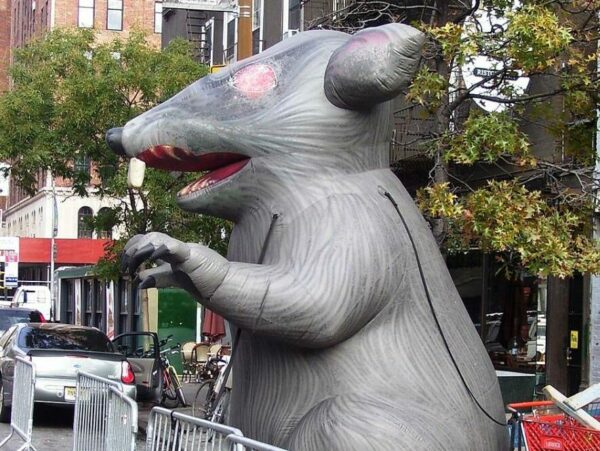March 21, 2013
Marc Bussanich
At the intersection of Washington Place and Greene Street on Wednesday afternoon a coterie of school children, musicians, labor leaders and state labor officials sang songs and delivered speeches to commemorate the 102nd anniversary of the Triangle Shirtwaist Factory fire, the worst industrial disaster in New York City’s history. (Read More/Watch Video)
On March 25, 1911, as the workday was ending, a fire broke out on the upper floors of the 10-story Asch Building. The workers on the eigth, ninth and tenth floors were trapped because the owners of the Triangle Waist Company who employed them had locked doors and windows to keep union organizers out.
The fire soon spread and engulfed the upper floors, claiming the lives of 146 people, mostly Jewish and Italian immigrant women. Many jumped to their deaths to avoid the flames and could not be rescued as they crowded on a fire escape because the fire department didn’t have ladders to reach beyond the sixth floor.
Speakers noted how the tragedy spurred reforms and legislation for comprehensive worker safety laws to improve working conditions for garment workers and workers in other sectors.
New York State Labor Commissioner, Peter Rivera, accompanied by some of his staff, said the fire was a terrible tragedy, but the changes that followed prevented a reoccurrence of other horrific tragedies.
“Something good came out of that tragedy; there was change. Behind me are people who make that change occur in New York day after day, year after year. They make sure that the tragedy that occurred 100 years ago will never occur again in the state of New York.”
Speakers also noted how, despite the progress made in labor practices and standards since the tragedy, such as occupational fire and health safety, mandatory wage laws and worker compensation laws, they acknowledged there is still much to do.
John Liu, the city’s comptroller, whose mother worked in a garment sweatshop when the family emigrated from Taiwan, drew a loud applause when he called for social policy changes.
“More than 100 years later the struggle continues; to increase the minimum wage once and for all so that we can uplift the working poor, enact paid sick leave in New York so that workers, mostly women who are immigrants, can stay home if they aren’t feeling well… and we need comprehensive immigration reform now,” Liu said.
Noel Beasley, president of Workers United, which represents textile and apparel workers in North America and Puerto Rico, said that 100 years after the Triangle Shirtwaist Factory fire, fires are still claiming workers’ lives around the world.
“Why is this yearly commemoration still so important to us? This fire galvanized a nation. This fire built another fire and created a broad and deep movement for change in this country. In 2013 much has changed and we here in America have come to expect safer work places. But still around the nation and the world workers are needlessly dying. Last September two garment factories in Pakistan caught fire and killed over 300 people and then in November a fire ripped through the Tazreen garment factory in Bangladesh killing over 100 workers were all to reminiscent of the Triangle fire a century ago,” said Beasley.
Vinny Alvarez, president of the NYC Central Labor Council, said the Triangle factory fire was a significant event because the worker protection laws that followed the tragedy saved lives. But in 2013 workers still have to struggle to maintain their protections.
“As the attack on working people continues, more now than ever we have to be vigilant and we have to redouble our efforts to advocate for working people’s safety and health laws throughout this country.”



